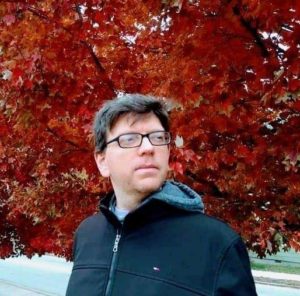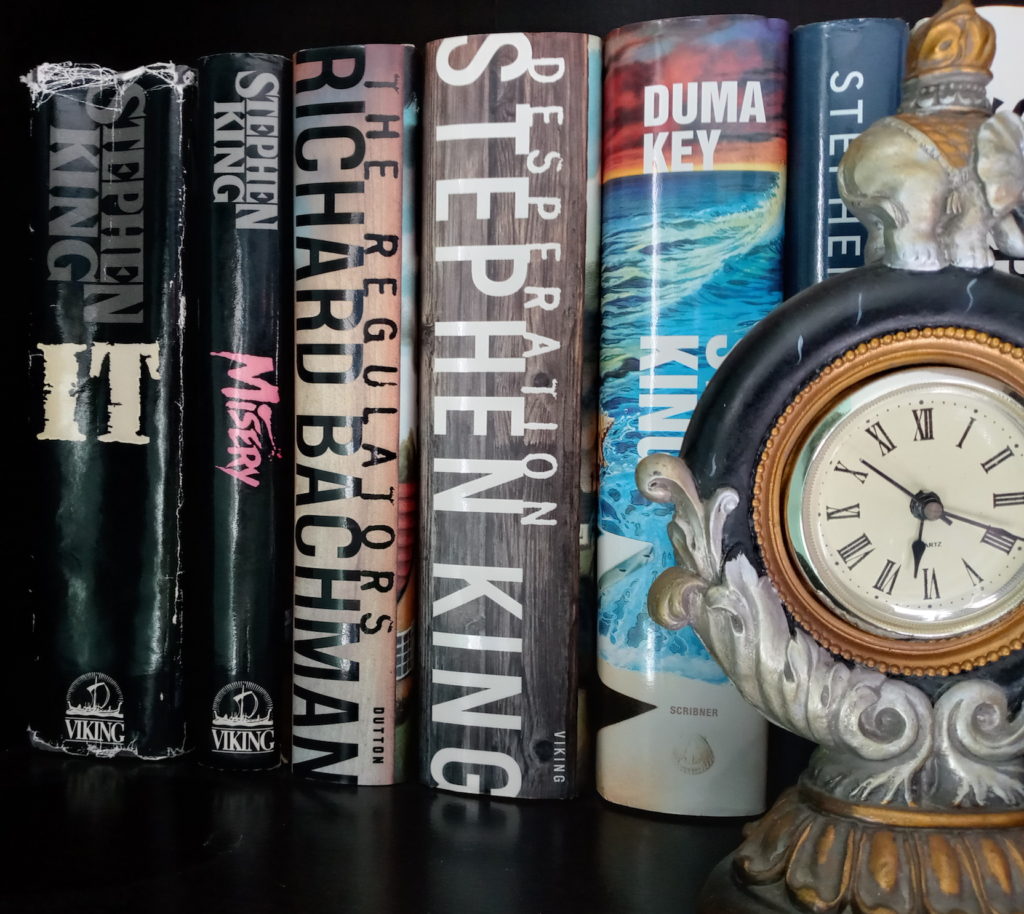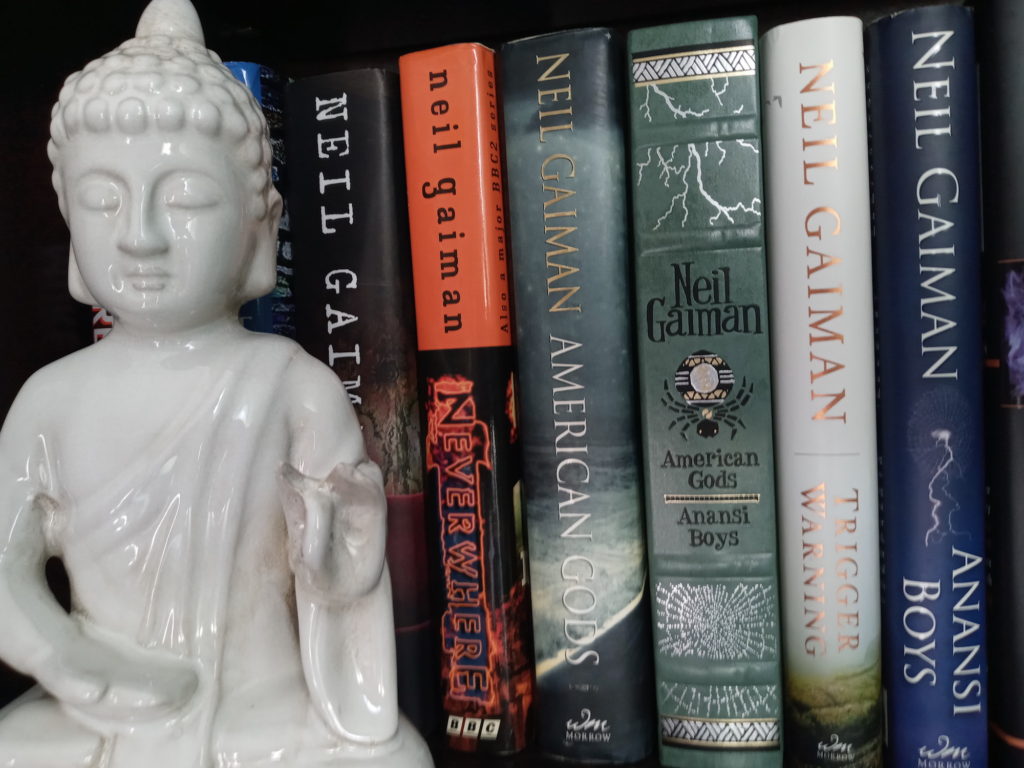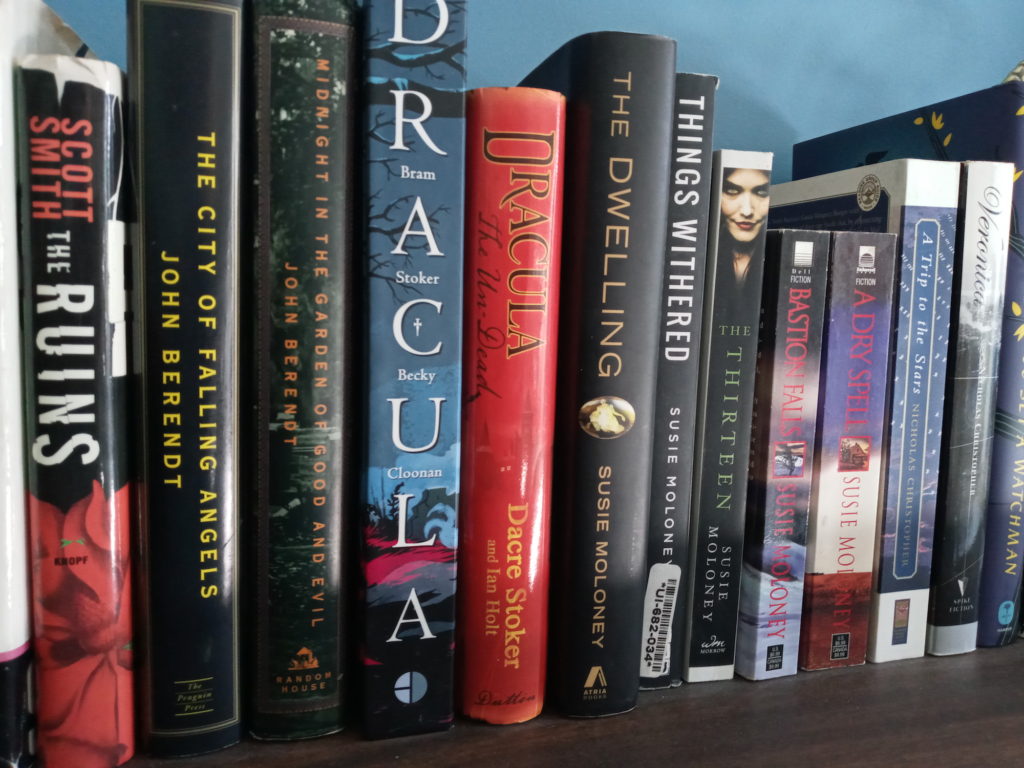Show Me Your Shelves | Mark Allan Gunnells
Interviews
Show Me Your Shelves is a regular book column by Gabino Iglesias. In this edition he talks with Mark Allan Gunnells, author of the novels 2B and 324 Abercorn and the story collections Flowers in a Dumpster and Book Haven: And Other Curiosities.
Mark Allan Gunnells is one of those authors I think people should read but also should follow on social media. On the writing side, he’s an outstanding horror writer who consistently delivers fun, fast, creepy narratives full of flawed, real characters, some of whom belong to the LGBTQIA+ community. On the social media side, he’s a warrior who consistently helps out other authors, discusses the ins and outs of publishing honestly, and advocates for diversity in fiction.
I read Mark’s 324 Abercorn last year and mentioned it in an essay I wrote for Locus Magazine about my favorite dark reads of 2020. Now he’s released 2B, a novel that more or less redefines problematic relationships. With so much going on, I thought it’d be the perfect time to talk to Mark about his work and take a look at his bookshelves while at it. Here’s what he had to say.

Gabino Iglesias: Who are you and what role do books play in your life?
Mark Allan Gunnells: I’m just a guy who loves stories, reading them, watching them, listening to them, and making up my own. Books actually saved me. I grew up poor in a small town, ashamed of myself and deeply in the closet, surrounded by racism and sexism and homophobia. The books I discovered in my local library showed me a wider world than the one I knew—that there were different kinds of people and different ways to live. Books are sacred to me.
GI: Can you tell us about a few books that turned you into a horror fan?
MAG: Not very original, but Stephen King definitely was the first writer I connected with. For me, it was his small-town settings and his everyday characters that felt so real and so authentic: horror not in some gothic castle or on some foggy English coast but right next door. Then Clive Barker came along and with the bold and electrifying fiction in the Books of Blood revealed to me that anything was possible.
GI: We all have favorite books that remind us of someone or something or a special time. If you moved into a tiny place and could only bring a few books, what would you bring?

MAG: Oh my God, that’s such a tough one. But definitely Misery by King. That book is a go-to I’ve reread so many times not just for its great suspense but because of its intelligent discourse on the artistic drive. I’d also want a recent book I read called A Place for Us by Fatima Farheen Mirza. It got me so invested in the family at the heart of the story that I felt I knew them and my heart broke for them when they encountered hardships. That kind of world and character-building is magical. Lastly, and speaking of magic, Neverwhere by Neil Gaiman is one of those books I didn’t want to end. I actually felt homesick when it was over.
GI: You talk a lot about diversity and representation in fiction. Horror fiction has taken steps in the right direction, but the battle is far from over. Why have you made it your mission to contribute to that fight and constantly encourage others to read diverse books?
MAG: Being a gay writer in the horror field, I grew up never seeing myself represented in the genre I love so dearly. When I first started publishing, I met some publishers who suggested there wasn’t a place for me. I’m glad to prove them wrong, and it makes me more determined than ever to bring more visibility and representation to authors from marginalized communities. Visibility and representation matter. I also realize that because I grew up reading what was most available, my own reading has not always been very diverse. I think reading more diversely exposes you to rich and exciting stories you might miss if you only read what gets the most press.

GI: I read 324 Abercorn last year and just finished 2B, your latest from Valhalla Books. While they are completely different narratives, there are some similarities. I’m hoping for a third book that’s very much about a place and that includes a haunting because it will feel like a thematic cycle. Is this something you’ve considered?
MAG: Oddly yes. I haven’t thought in those terms, but I do have another take on the haunted house story I want to write, which would be called Imposter Syndrome. I love stories of ghosts and hauntings, and I like doing different takes on the subject.
GI: 2B is gritty, and I’m not just talking about horror and scary stuff. The narrative is full of flawed characters and you set up a harsh reality from the start. What made you decide to write a scary, gritty story anchored in love?
MAG: That story started from the ending; I got the idea from the ending and built a story around it. However, as I wrote I realized that the story was also about trauma and in some ways—about how we deal with trauma, especially when everyone else around you wants you to just get over it and be grateful you survived. I think most humans, myself included, are flawed. Fiction that reflects that can be very powerful because it is authentic. My characters here are flawed, but I love them all.
GI: What are some of your favorite ghost/haunting narratives?
MAG: Oh goodness, so many. The Shining, of course, but I also love The Dwelling by Susie Moloney, which isn’t as well known as it should be. The Good House by Tananarive Due isn’t a traditional haunted house novel, but it is in that vein and is quite good. Anne Rivers Siddons’ The House Next Door is quite good as well.

GI: Who are you reading these days?
MAG: I recently finished your Coyote Songs and thought it was exceptional. I also just finished The Hunger by Alma Katsu and Sea Swallow Me by Craig L. Gidney and really enjoyed both. I’m currently reading Signal to Noise by Silvia Moreno-Garcia and The Between by Tananarive Due; both are excellent so far.
GI: We’re not done with the pandemic yet, but you have a new book out. What are you doing to get the word out and where can people find you?
MAG: Well, I’ve already set up several podcast interviews and guest blogs and things of that nature to try to pimp myself as much as possible. You are an inspiration when it comes to hustle, and wherever I can pop my head up to talk about the book I will. I’m active on Facebook, Twitter, and Instagram. I also blog at markgunnells.livejournal.com.
GI: The year is young; what 2021 releases are you looking forward to the most?
MAG: I am looking forward to Josh Malerman’s Goblin, a book I missed in its limited edition incarnation. I also enjoy the suspense work of Joshilyn Jackson, and she has a new one—Mother May I—coming out this spring. I know you and Tananarive Due have both recently finished books. They may not be out this year, but my money is ready when they are.
Gabino Iglesias is a writer, professor, and book reviewer living in Austin, Texas. He is the author of Zero Saints and Coyote Songs and the editor of Both Sides: Stories from the Border. You can find him on Twitter @Gabino_Iglesias.
More Interviews


